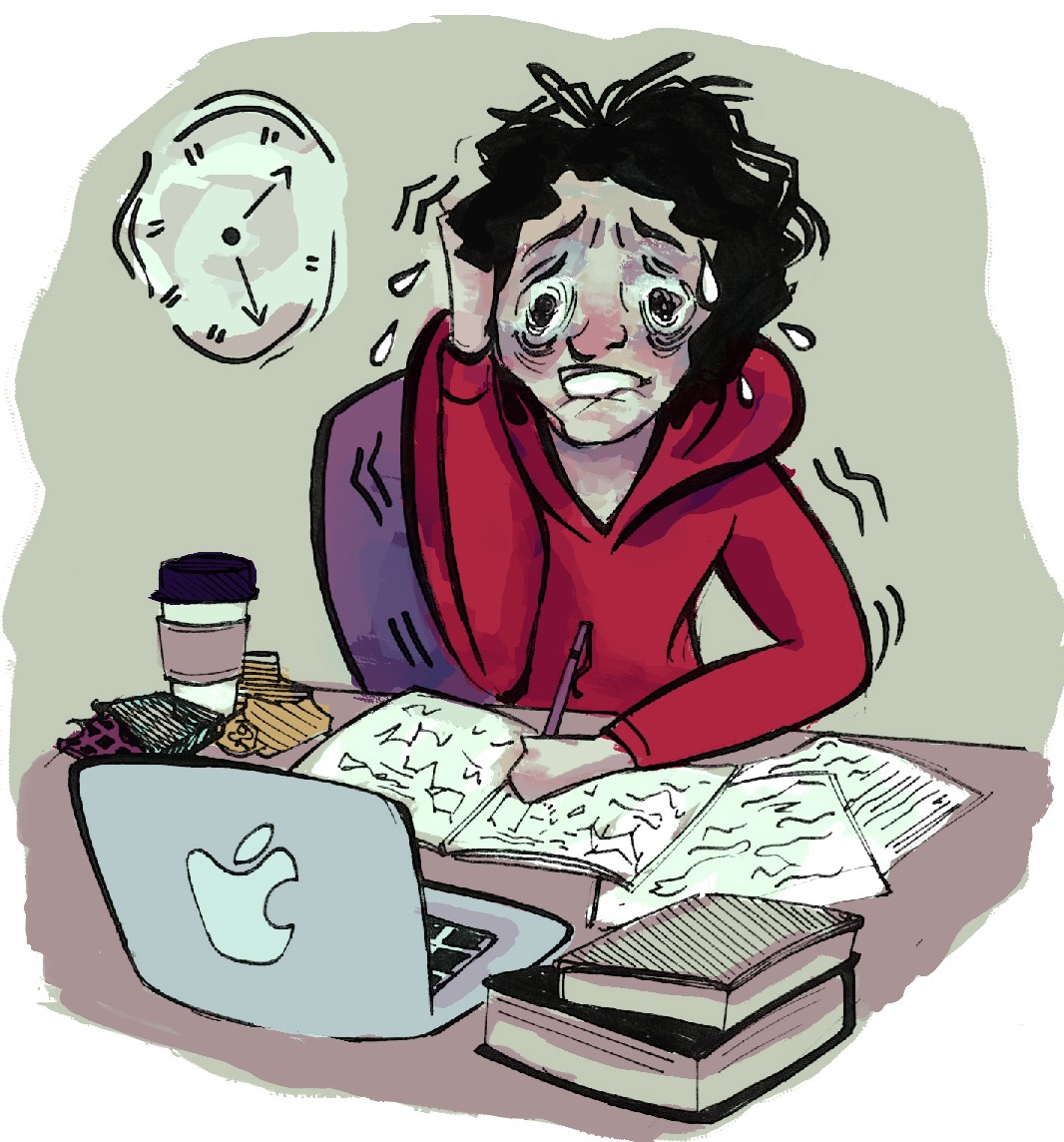A sense of urgency begins to loom on campus as finals approach. Libraries get more crowded, lines at Tim Hortons get longer, and all-nighters become more frequent. With all the pressure to do well, finals tends to generate a great deal of stress among students. But what exactly is stress?
According to the National Institute of Mental Health, the mere mention of the word stress can cause stress. The Mayo Clinic defines it as “a psychological and physical reaction to the ever-increasing demands of life.” These demands could be small, like finding a new route to class, or drastic, like moving to a new city, getting a new job, or attending a new school.
As a general principle, the human body likes to maintain a relatively stable internal environment, known as homeostasis. External changes can lead to a physiological response that disturb the body’s homeostasis. This is felt as stress.
In the past, stress caused by external stimuli served to protect humans from potential threats like predators. Nowadays, despite the emergence of different stimuli and demands from life, the body’s physiological response, or stress mechanism, has remained the same. Also known as the “flight or fight response,” this stress mechanism is controlled by the sympathetic nervous system.
Whenever the brain senses a threat (stressor) the sympathetic nervous system is activated. A few complex reactions later, the hormone epinephrine is released by the adrenal glands. Epinephrine results in higher pulse rate, increased blood pressure, and rapid breathing. The person experiencing these becomes more alert and all the senses become sharp. As epinephrine’s effects begin to subside, the secondary component of the stress response is activated. Known as the HPA axis, it uses a series of hormonal signals to keep the sympathetic nervous system repressed.
Normally, this benefits the individual by mounting an appropriate response to the stressor. Once the threat is terminated, the body returns to normal through the workings of the parasympathetic nervous system. Problems begin to emerge, however, when a person is constantly bombarded by stressors for a long period of time resulting in chronic stress.
“Persistent epinephrine surges can damage blood vessels and arteries, increasing blood pressure and raising risk of heart attacks and strokes,” a report by Harvard Health Publications reads.
Students during finals are very susceptible to periods of chronic stress. They often put in huge amounts of work and time into their studies. Small doses of stress can be beneficial because increased alertness and sharper senses can make students work at higher levels. Constant stress, however, can be quite harmful.
The Mayo Clinic reports on its website that overactivation of the stress pathway leads to headaches, muscle tension, fatigue, sleep problems, anxiety, lack of motivation, and depression reports.
These symptoms, if experienced during finals, or any other time of the year, are detrimental to the student. Unfortunately, stress is an integral part of a college student’s life. But it is the way a student responds to the stress that is important.
A 2008 Associated Press and mtvU survey of college students found that 80 per cent of college students say they frequently or sometimes experience stress. To cope with this stress, a student can rely on family, friends, and the services provided by their respective university. McGill, for example, provides special therapy sessions with kittens and dogs to relieve some stress. Qualified counsellors are also available to provide support.
The world is filled with constant stressors. Stress-management, therefore, is a serious subject that individuals should work on to ensure a healthy future.









